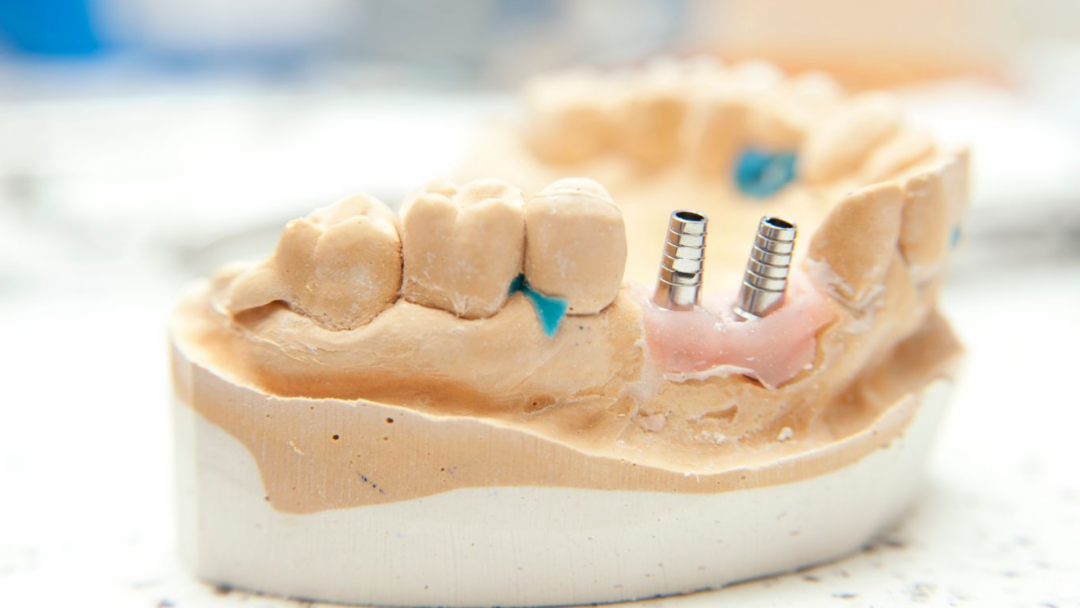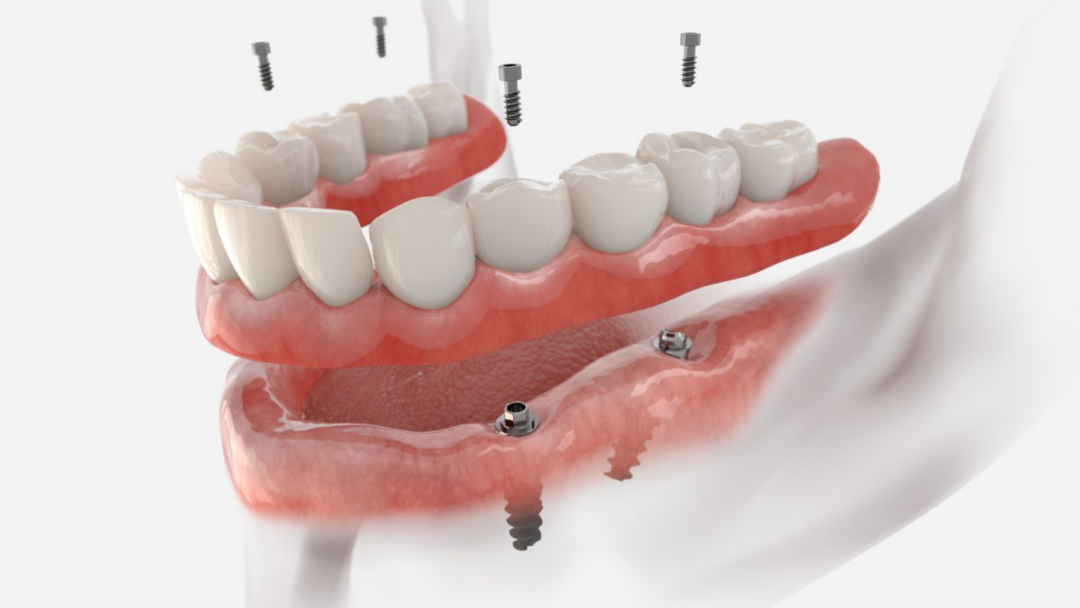
Implant Treatment in Bone Deficiency
We provide bone grafting and CT scans for patients experiencing bone loss.
Read More
We provide comprehensive periodontal and dental implant services tailored to meet each patient's unique needs. Our team of experienced specialists is dedicated to restoring your oral health and giving you a confident smile.
Modern and permanent implant solutions for missing teeth.

Dental implants are titanium posts surgically placed into the jawbone beneath your gums to replace missing tooth roots. They provide a strong foundation for fixed or removable replacement teeth designed to match your natural teeth. Made from biocompatible materials, they integrate with your bone through a process called osseointegration.
The implant procedure typically involves several steps: 1) Initial evaluation and planning using 3D imaging, 2) Placement of the implant into the jawbone under local anesthesia, 3) A healing period of 3-6 months for osseointegration, 4) Attachment of the abutment, and 5) Placement of the final crown or prosthetic tooth. Some cases may require additional procedures like bone grafting before implant placement.
Good candidates for dental implants include individuals with: 1) Healthy gums and adequate bone to support the implant, 2) Good overall health, 3) Commitment to oral hygiene and regular dental visits. Age is not typically a limiting factor, but certain medical conditions like uncontrolled diabetes or heavy smoking may affect eligibility.
Dental implants have a success rate of up to 98% when properly cared for. Their longevity depends on factors such as oral hygiene, regular dental check-ups, lifestyle habits, and the expertise of the dental professional performing the procedure.
The procedure is performed under local anesthesia, ensuring you feel no pain during the surgery. Some patients may experience mild discomfort and swelling after the procedure, which can be managed with over-the-counter pain medications. Most patients report that the process is much more comfortable than they expected.
With proper care and maintenance, dental implants can last a lifetime. The crown attached to the implant typically lasts 10-15 years before needing replacement due to normal wear and tear. Regular dental check-ups and good oral hygiene are essential for longevity.
Bone grafting is a procedure to build up the jawbone when there isn't enough bone volume to support an implant. It may be needed if you've had periodontal disease, injury, or long-term tooth loss. The graft can be from your own body, donors, or synthetic materials.
Dental implants require the same care as natural teeth: regular brushing, flossing, and dental check-ups. Special cleaning tools like interdental brushes may be recommended. Avoid hard foods and tobacco products, and address teeth grinding if present, as these can damage implants.
Yes, implants can replace single or multiple missing teeth. Options include individual implants for each missing tooth, implant-supported bridges for several adjacent missing teeth, or implant-supported dentures for full arch replacement. The best solution depends on your specific situation.
Immediate loading refers to placing a temporary crown on the implant the same day as the surgery. This is possible in select cases where there is excellent bone quality and quantity, good initial implant stability, and no grinding habits. Not all patients are candidates for this procedure.
Dental implants offer several advantages: 1) They look and feel like natural teeth, 2) They preserve the jawbone and prevent bone loss, 3) They don't affect adjacent healthy teeth, 4) They allow normal eating and speaking, 5) They are fixed in place without slipping, 6) They can last a lifetime with proper care, and 7) They help maintain facial structure and prevent premature aging.
Recovery typically involves: 1) Initial healing of 7-10 days for soft tissue, 2) An osseointegration period of 3-6 months, 3) Minimal disruption to daily activities - most patients return to work within 1-2 days, 4) Following specific post-operative instructions including diet modifications and oral hygiene protocols. Complete healing varies by individual and procedure complexity.

We provide bone grafting and CT scans for patients experiencing bone loss.
Read More
Screw-retained prosthetics provide aesthetics, functionality, and ease of cleaning.
Read More
Seamless (flapless) implants offer faster healing and less pain but come with extra costs.
Read More